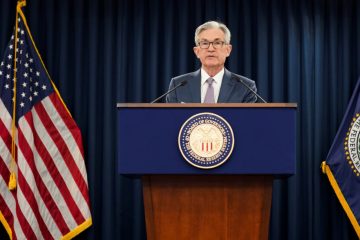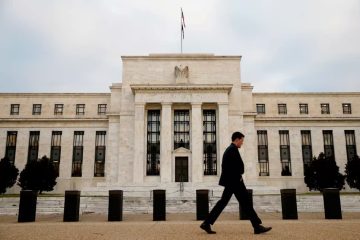Facebook’s planned new currency may be based on a blockchain

THE EXCITEMENT among crypto-buffs is palpable. Facebook, the world’s largest social network, appears to be planning to launch a digital coin early next year. But they should not get their hopes up too high. If the firm does indeed launch what is being dubbed FB Coin, GlobalCoin or Libra, it will be a tame sort of cryptocurrency—more Bitcoin 0.5 than 2.0.
Facebook has declined to comment on the speculation, but is clearly up to something. Last year it put a highly regarded senior executive, David Marcus, in charge of a new team exploring “ways to leverage the power of blockchain technology”, which underlies cryptocurrencies. In April Mark Zuckerberg, Facebook’s boss, said at its annual shindig for developers that it “should be as easy to send money to someone as it is to send a photo”. It seems to be talking to potential partners, such as credit-card issuers and merchants, and financial regulators, such as Mark Carney, the governor of the Bank of England.
In America Facebook’s Messenger app already allows peer-to-peer transfers, but only in existing currencies and between accounts linked to bank-issued payment cards. But the new blockchain-based money would be a currency on its own.
Reasons abound why Facebook might want to take this step. It has to pull even with other big global apps that already offer easy payment features, such as WeChat in China. A digital coin would work in developing countries, where many people are unbanked and remittances from abroad are large (India is rumoured to be among the first countries where it will be available). If it is used for commerce, not just peer-to-peer payments, Facebook could take part of the fee that now goes to card-issuers, and charge more for ads, since buying the products touted would be quicker and simpler. It could move into services such as tipping, for which other payment systems are too pricey (at the Facebook do Mr Zuckerberg demonstrated how users could send content-creators some digital change). Data on payments would help make up for what the firm will lose in its planned “pivot to privacy”, which includes steps such as allowing users to communicate on encrypted channels.
But despite the crypto-buzz, the new currency is unlikely to be a close relative of Bitcoin, says Lex Sokolin, a fintech analyst—that is, a decentralised system with no one in charge. Facebook will want to be in control to gather data, simplify administration and avoid the currency being targeted by speculators such as hedge funds. It will be a “stablecoin”, backed by established currencies such as the dollar to avoid the volatility that has bedevilled Bitcoin (which is heading back towards $ 9,000 after falling to little more than $ 3,000 last year). Regulators, fearing money-laundering or other criminal activity (as happens with Bitcoin), will surely set strict rules, perhaps capping transfers and policing their flow across borders.
Facebook is well-placed to make a go of the venture, according to Ben Thompson of Stratechery, a widely read newsletter on the tech industry. Its services now boast a total of 2.4bn monthly users. It could entice merchants with discounts if they use the new coin to buy ads, and users by paying them in it for viewing those ads—or perhaps, which would be a giant step for Facebook, even for providing data about themselves.
Yet it will not have the field to itself. Similar coins already exist. Signal and Telegram, two messaging apps, are also planning digital cash. Moreover, payment cards are ubiquitous in the rich world, and easy to use online. And then there is the question of whether, for all its reach, a FaceCoin would really be welcome. Should a firm that has shown a cavalier attitude towards users’ data be trusted to deal with their money?









